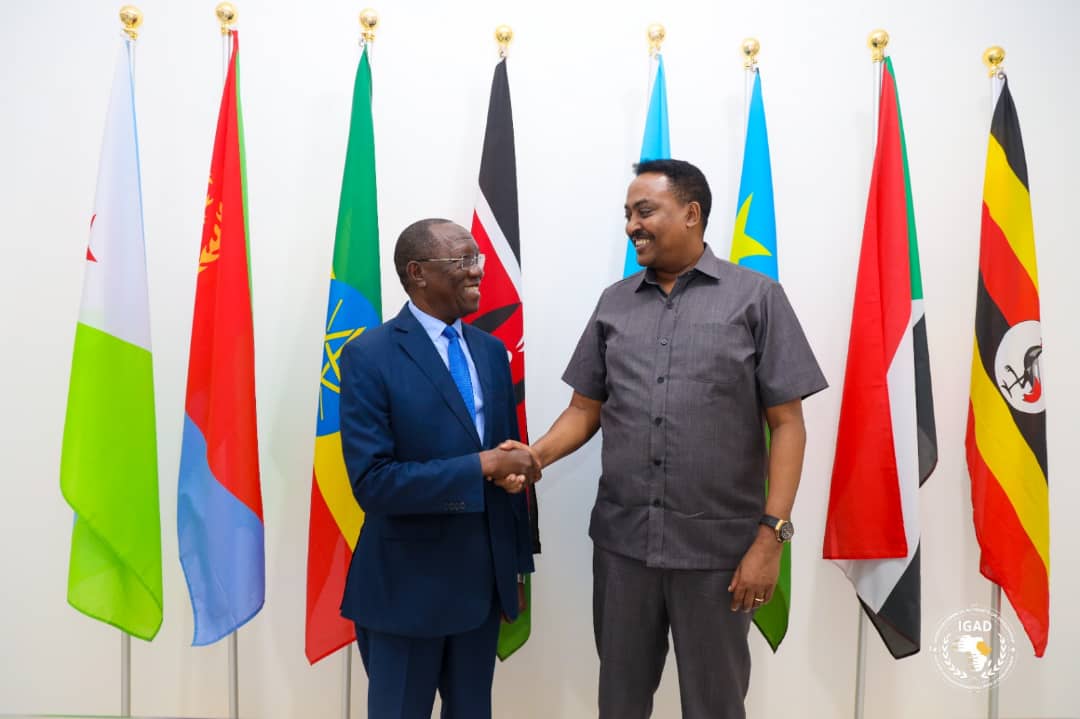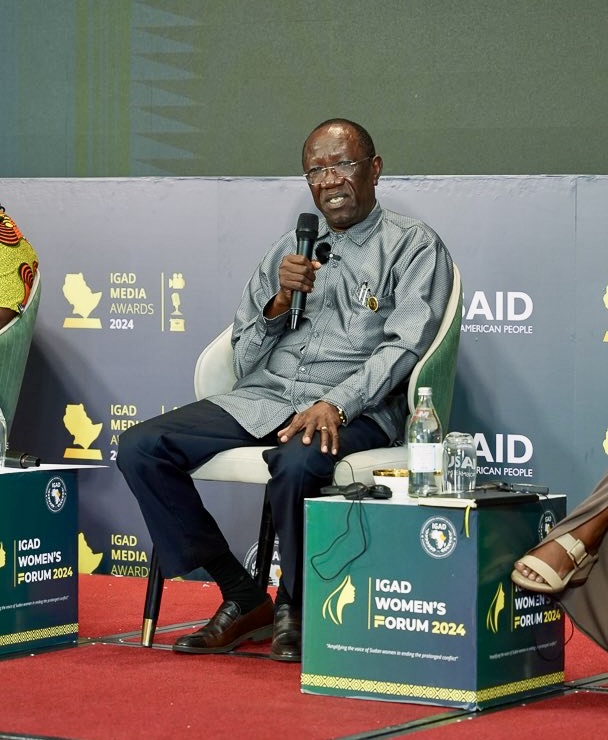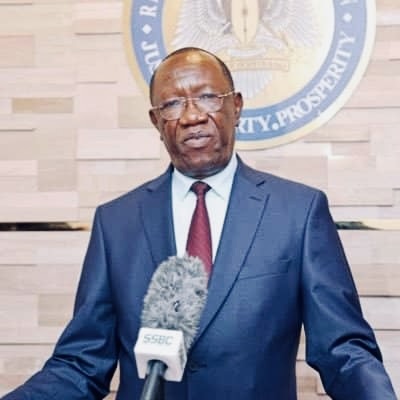Lawrence Korbandy, IGAD special envoy to Sudan: Efforts to mediate the conflict
19 November 2024
In an exclusive interview, the East African Intergovernmental Authority on Development (IGAD) special envoy to Sudan revealed the organisation’s efforts to mediate Sudan’s ongoing conflict and tackle the escalating humanitarian crisis. Among the key initiatives, he highlighted IGAD’s plan to deploy a non-combatant unit to Sudan’s capital for six months, aiming to support peace and protect civilians in the heart of the crisis.
IGAD’s mediation efforts
Since the outbreak of war in Sudan, IGAD has been actively working to mediate a peaceful resolution, according to the organisation’s special envoy Lawrence Korbandy. The envoy explained that the IGAD was the first to respond to the crisis, with heads of state holding an extraordinary meeting just one day after the conflict began on 15 April last year.
IGAD also played a key role in the Jeddah Declaration, Korbandy said, where the executive secretary co-chaired efforts to foster peace in Sudan. “IGAD has been actively engaged from the outset,” the envoy said. “We were there during the Jeddah Declaration, and we also held crucial meetings in Djibouti to further our peace efforts.”

IGAD’s engagements with the warring parties and civilian forces
The IGAD special envoy shared that after his appointment, he immediately engaged with key leaders, starting with a meeting in April this year with the deputy of the sovereignty council in Juba. “We discussed the importance of Sudan returning to IGAD and playing a role in the peace process,” he said. At that time, Sudan had suspended its IGAD membership. He also visited Port Sudan in August and included meetings with the Sudanese Armed Forces (SAF) commander in chief, General Al-Burhan, and other officials.
He added that he has also been engaging with the Rapid Support Forces (RSF), including meetings with their negotiation team in Addis Ababa. “We’ve been in continuous dialogue with all parties.”
The envoy highlighted that the IGAD and African Union (AU) jointly hosted a meeting with Sudanese political parties and civil society groups in Addis: “We met Taqqadum and their allies, as well as the democratic forces from Port Sudan and Cairo. These groups presented their visions for peace in Sudan. “There’s no big difference in how the civilian forces want to solve Sudan’s problems,” he said.
The special envoy confirmed to Ayin that there is still a possibility to bring the two generals to the negotiation table. “There was a meeting scheduled in Uganda last month for the two generals to meet, but it was postponed to a later date,” he said. He remains confident that a face-to-face meeting will eventually happen, emphasising “there’s no option for peace in Sudan through war; it has to be through the negotiation table.”

IGAD’s vision for civilian protection
The IGAD special envoy to Sudan tacitly supports the UK’s resolution to the UN Security Council (UNSC) regarding the Jeddah civilian protection agreement. He acknowledged the UK’s support for protecting civilians but insists the process must involve Sudanese authorities. “The protection of civilians is a constitutional function of the state, and the authority in place is the sovereignty council of Sudan, the government of Sudan, and the army,” he stated. While Sudan’s African Union membership is suspended as a result of the 2021 coup, IGAD still recognises the importance of protecting civilians within Sudan’s constitutional framework.
However, the envoy stressed that the Jeddah declaration has not been fully implemented yet, pointing out that there’s a need for a mechanism for its implementation. “Jeddah is a declaration; it needs a mechanism to be implemented,” he explained. IGAD has developed a draft mechanism, which they have shared with stakeholders, and believes that successful implementation of Jeddah could open humanitarian corridors and lead to a peaceful political process in Sudan. He added that for this to happen, “the warring parties must stop the fighting first.”.
Regarding the protection of civilians, the special envoy highlighted IGAD’s experience in addressing regional conflicts. “IGAD has the capability to solve regional issues,” he noted, referencing IGAD’s past role in bringing peace between Sudan and South Sudan.
He also stated that while civilian protection is primarily the responsibility of the state, intervention becomes necessary if the state is unable to protect its citizens.
In terms of specific proposals, IGAD is exploring the deployment of non-combatant forces to oversee the execution of the Jeddah Declaration. These forces would not be from Sudan’s neighbouring countries to avoid potential political influences. “The deployment would have a limited time of six months, extendable with the agreement of the parties, and specific tasks,” the envoy explained.
The focus would be on Khartoum state, Sudan’s capital, to help stabilise the situation there. “This is a small but effective step that can help restore calm to the capital, including the Khartoum international airport, and revive vital institutions,” he told Ayin. He insisted that IGAD’s mechanism is designed as an “African solution for African problems” aimed at addressing Sudan’s crisis.
IGAD envoy calls for unity and peace in Sudan
The IGAD special envoy shared a message for the warring parties, political forces, and the Sudanese people, who are enduring immense suffering due to the ongoing conflict. He first addressed the warring parties, urging them to reconsider their path. “They should stop the war rather than continue fighting,” he said. “The consequences are too great for their own citizens.”
To the Sudanese people, the envoy expressed solidarity with their suffering: “War is never an option,” he said, “it takes people from their homes, creates hatred, disrupts education, and worsens health conditions.” He called for unity among the Sudanese people: “They must unite with one objective: to tell the warring parties, we are tired of war; please stop the fighting; we want to go back to our homes.”
Finally, he emphasised that peace must be the priority for Sudan. “Once the war stops, the political process can begin with the goal of ending the war,” he said. “Ending the war is different from stopping the war.” He urged Sudanese people to unite, putting aside ideological differences, for the future of their country. “Only then can Sudanese people live in harmony, prosperity, and coexistence.”


